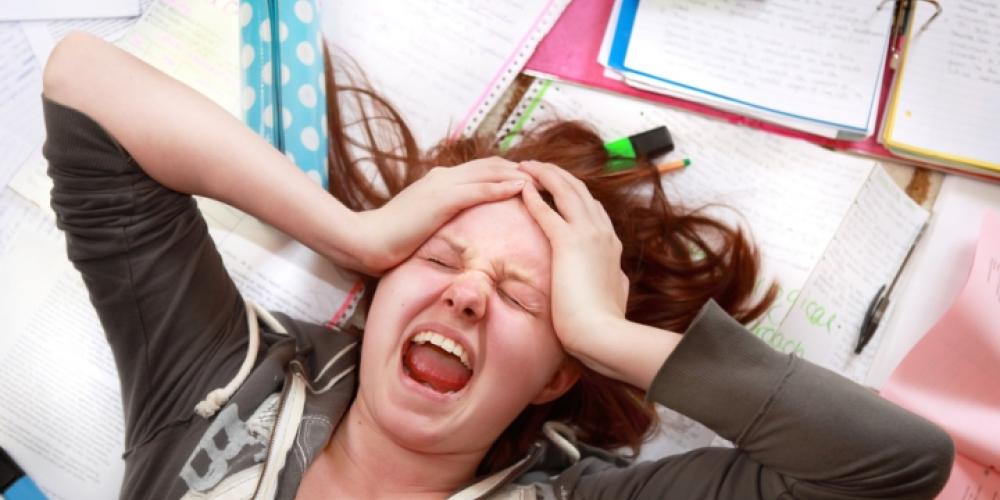
The Study Guidance Centre's (SGC) main anti-stress activities are available before the exams. Training sessions on 'coping with stress', 'coping with fear of failure' and 'exam skills' are part of the guidance programme intended to get students ready and prepared to start on their exams. During ‘show-time’, things are quiet at the SBC contact point, but students often rush back after the ‘wake-up call’ of the exam results. “Only a few students come in every day, mostly suffering from light panic attacks”, said Rebecca. “Nevertheless, we keep the contact point open as much as possible. We want to be there for students who need us. Even if they just come in to get things off their chest after an exam. Stress can be a determining factor.”
The many faces of stress
“Stress shows itself physically through sweating, muscle tension, heart palpitations or abdominal pain. There are also cognitive symptoms such as worrying, dark thoughts or loss of concentration. Behaviourally, it manifests through either excessive studying or a complete lack of studying”, said Johanna. Recognizing stress is the first step towards coping with it.
“Whenever a student comes to us in a panic, we will first try and frame the situation”, explained Rebecca. “Panic may be justified, but in the case of fear of failure, that is usually not the case. Neither does the level of stress predict how the exam will go.” Students can find physical rest through relaxation exercises. “By shifting the focus from the exam to what can actually be done, you can create mental space of calm. Practice task-oriented thinking instead of self-centred thinking. Concrete goals help in the short term.”
Balance and self-knowledge
All students can arm themselves by recognizing and eliminating the stress factors affecting them. “A person who is sensitive to other people's stress before the exam can opt to go for a walk, for instance. Or they can get off the tram one stop earlier”, Johanna adds. “Balance is everything”, Rebecca confirms. “Studying too much is as harmful as studying too little. Take sports breaks. Do not skip meal breaks. Get enough sleep. And while you are studying, study properly. Do not stay up around the clock.”